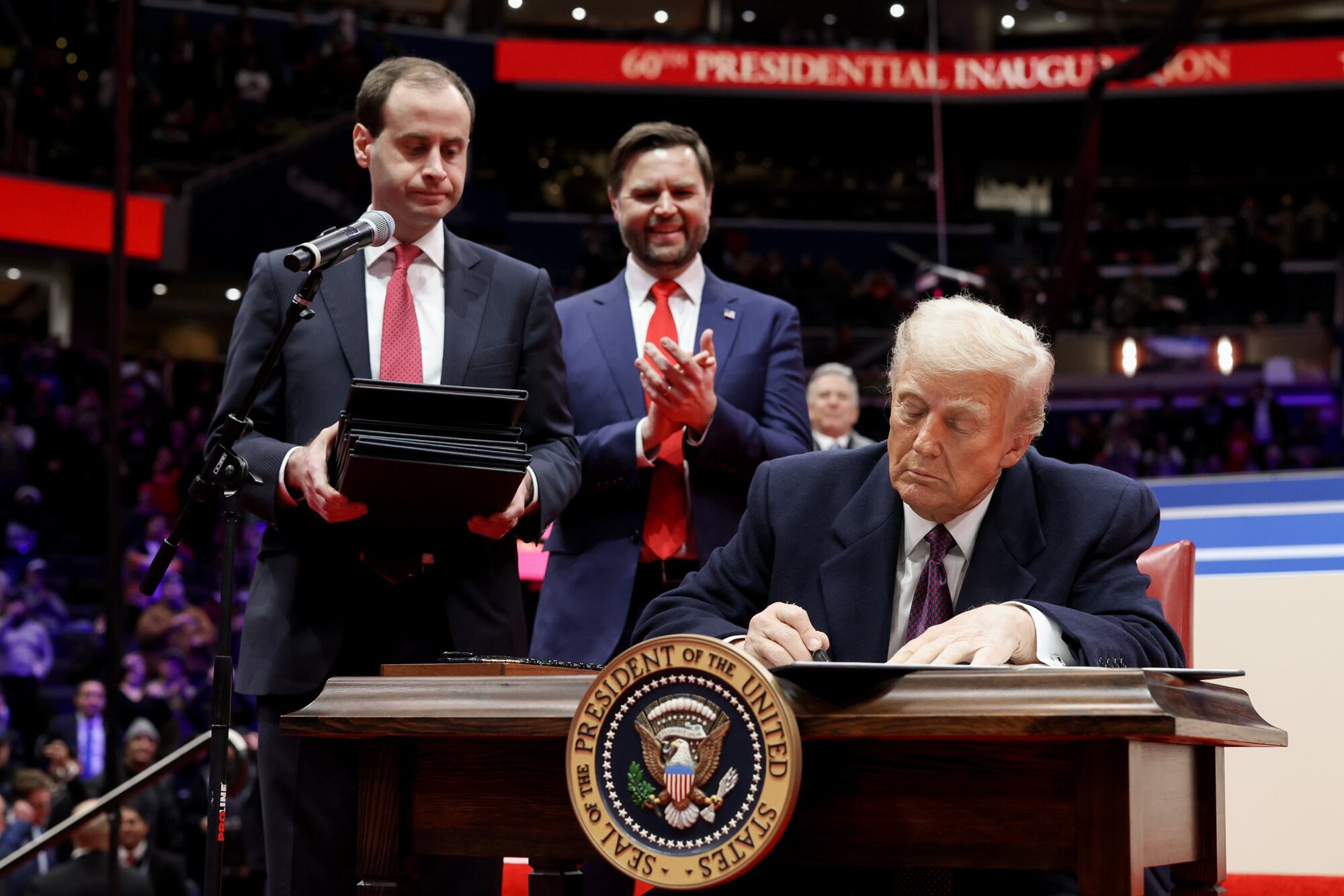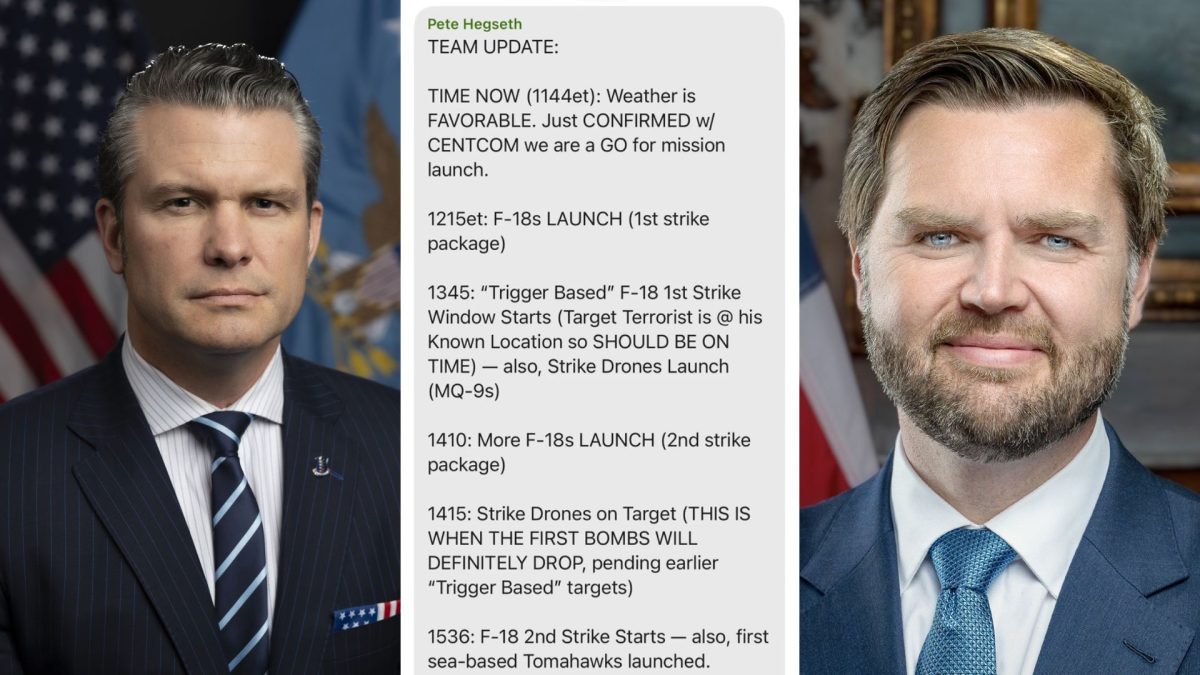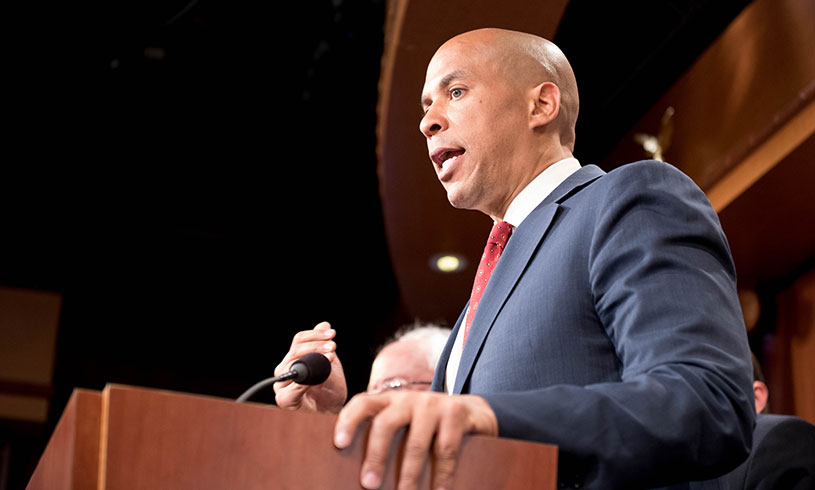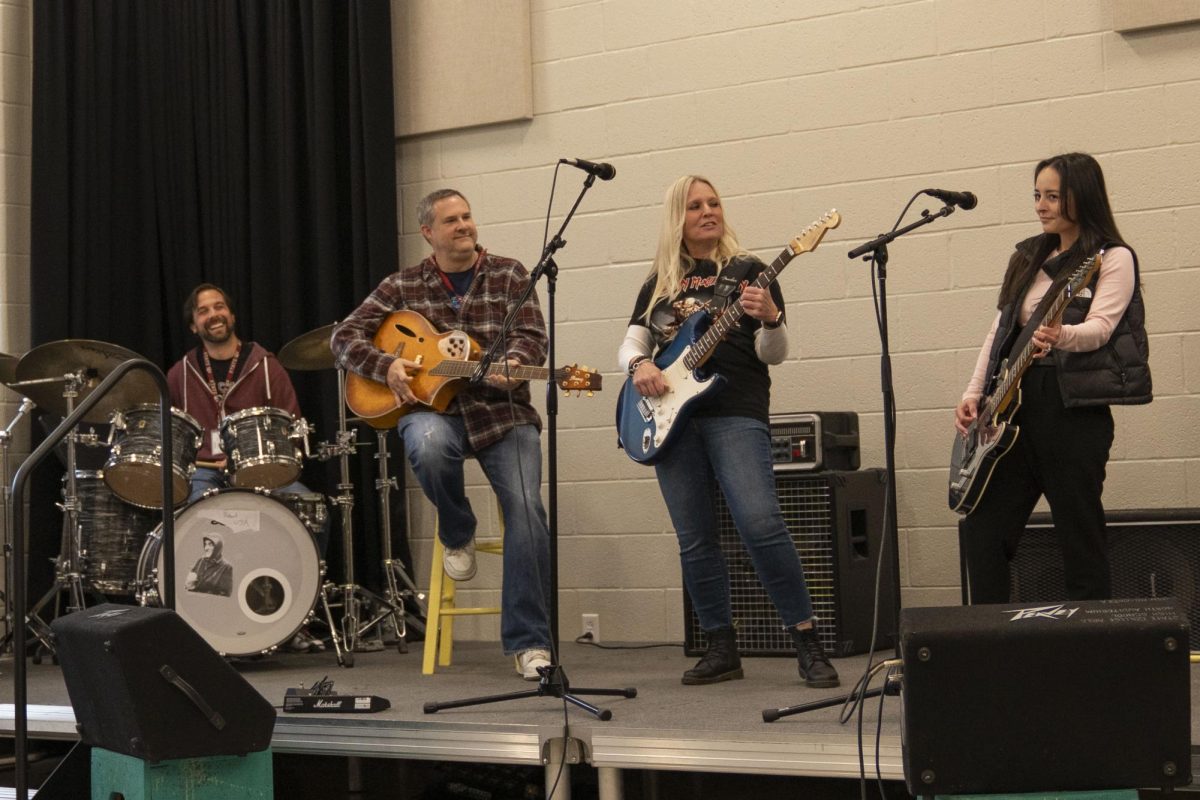Throughout the first two months of his second term, President Donald Trump has introduced many executive orders and actions regarding immigration.
Trump has been vocal about his anti-immigration stance in the past, referring to migrants as “animals” and “not human”. Immigration concerns have been a large part of Trump’s campaign since his 2016 campaign, but his vows to be more aggressive in how he handles it during this term have held true.
The executive orders cover a variety of immigration-related topics, ranging from stricter regulations of visas to limiting birthright citizenship to rescinding 78 of former President Joe Biden’s executive orders. Although the orders are harsh, they are not unexpected. Meghan Kelly-Stallings, a former immigration attorney who now works in government policy, explained her initial reaction.
“I think based on what he said on the campaign trail, there was a lot of concern about the ways in which he would increase enforcement and basically implement his statement or his plan to try to deport everybody, all the undocumented immigrants- even though I think many people knew that that was just very logistically challenging given the existing backlogs at immigration court. I don’t think I’ve been surprised by any of the executive orders, apart from the one in which he’s trying to override the Constitution. Everything else has been more or less in line with the rhetoric he gave on the campaign trail,” Kelly-Stallings said.
The orders were not just expected by people who work in fields related to immigration, but also by immigrants themselves. Student 1 is a student at State High whose family immigrated from Ukraine three years ago. Seeking asylum, they were able to come to the US through the Uniting for Ukraine program. This program has now been paused due to Trump’s executive order “Securing Our Borders”. Student 1 described their reaction.
“He [said] that on the second day, even when he [had] just become president. He’ll do everything [so] that in Ukraine, war will be over. And it’s already like he [has been] president for a month, and he didn’t do anything. So yeah, I was kind of expecting this because when he was [not] president, he was really bad to Ukrainian people, and he’s still acting bad to us,” Student 1 said.
Just because the orders have been issued doesn’t mean they will hold up. The orders have already faced significant pushback. It can be expected that they will continue to be challenged by being sued, blocked by judges and spoken out against. Kelly-Stallings noted that Trump is still under certain restraints.
“I think what Trump was trying to do is just, it was like a show of force. It’s a show of like, ‘Hey, this is something the president’s allowed to do’. Even though presidents have a lot of power, they are still subject to something called the Administrative Procedure Act when they do things related to the power that administrative agencies have. It’s not just what they’re allowed to do in terms of the subject matter of what they do, it’s how they do it, and sometimes the actual manner and how a president acts can be challenged in the courts because they didn’t do so properly,” Kelly-Stallings said.
Significant repercussions have already occurred for many immigrants. Student 2’s family immigrated from Guatemala over six years ago. They now experience fear when participating in daily activities.
“I feel unsafe because when I go out, I’m scared that someone can get me and send me with none of my things to where I’m from,” Student 2 said.
In addition to new policies, already existing agencies are ramping up their efforts. ICE, US Immigration and Customs Enforcement, has increased enforcement activity. Previously, ICE had a policy that stated that schools, hospitals and places of worship were protected spaces where arrests could not be made. That policy has now been rescinded by Trump. Kelly-Stallings spoke to the greater implications of the orders.
“The impact that’s going to have is an undocumented parent may not want to drive their kid to school. And what’s that going to mean? Is that kid going to get to school? Is that kid only going to go to school some days when they get a ride from someone else? What about people getting medical care if they don’t feel safe going to the hospital because they know that ICE might show up there?” Kelly-Stallings said. “I think there’s going to be a lot of instances of profiling of ICE officers making assumptions about who may not have lawful status in the country, but those assumptions being made based on people speaking another language or people looking a certain way or having a certain type of job, none of which are actually indicative of their immigration status.”
For immigrants, many difficult conversations are happening. Families grapple with the possibility of being torn apart, and uncertainty shrouds decisions.
“For me right now, I’m not really unsafe because I still have legal things to stay here for two years. But I kind of think what will be in the future. So I’m kind of scared about my future because I am only [in] ninth grade and I need [to] graduate after four years. So I don’t know. I’m kind of safe, but always need to think about [the] future. I don’t know what happens because I lost my home, and I don’t know what I will be doing next year,” Student 1 said.
Student 2 is also dealing with fear for the future.
“I’m just scared of what will happen to my family, Trump is saying that if they get some immigrants, they will put them in jail. So I’m scared of what will happen,” Student 2 said.
The orders create concern for people who work in immigration spaces. Due to the uncertainty present, the sheer number of calls immigration lawyers have received has grown. Many immigrants are unsure of the protections they have. Kelly-Stallings explained the ripple effect for immigration lawyers.
“One of my [lawyer] friends just says she’s trying to actually work on her cases, but it’s been hard to work because they’re just getting so many new phone calls, new potential clients, new people just wanting to see what their options are. And the hard part is having to be honest with clients about the fact that enforcement activity is increased. It’s hard to know what’s going to happen in times like these,” Kelly-Stallings said.
Luckily, immigrants still have the same rights as prior to Trump’s election. Immigrants are fully protected under the Constitution, and lawful status does not have any impact when in a private space. Judicial warrants are needed if an ICE officer wants to enter a home. Many immigration nonprofits are offering support to those in need. Knowing their rights will prove important to immigrants in the coming months.
However, the harm has already been done. Trump continues to issue executive orders that strike fear into the lives of immigrants, without any predictions possible for what could come next. Student 1 asked for awareness when it comes to the damage Trump is causing.
“I heard when it was [the] election, [students] all say that ‘Trump will be winning and we like Trump’. I just was staying quiet and I didn’t say anything. But it was so sad for me. You’ll see after this that it will be so hard for you and will change everything. But no, ‘Trump is the best. Trump will be saving America’. Okay, we’ll see how he’ll save you.”














